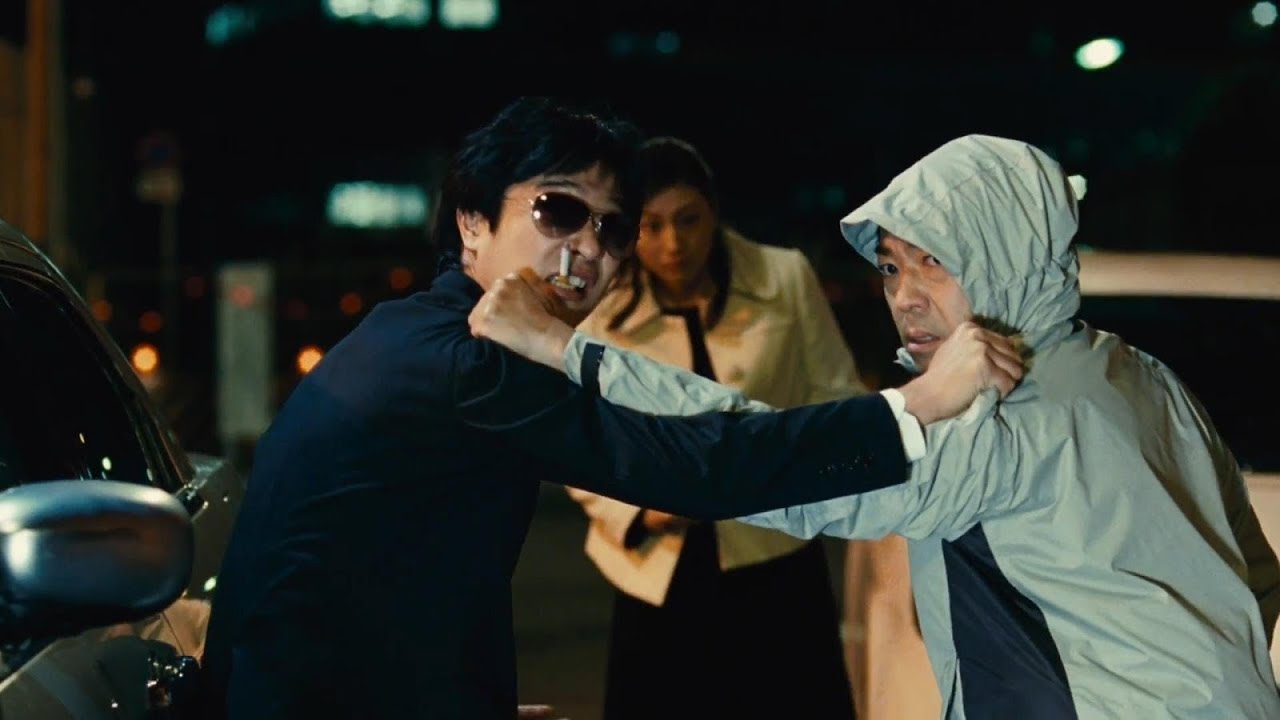By Chlotrudis Independent Film Society
Rating: 4.25 cats
Director: Kenji Uchida
Starring: Masato Sakai | Ryoko Hirosue | Toruyuki Kagawa | YosiYosi Arakawa

Original language title: Kagi-dorobô no mesoddo
Country: japan
Year: 2013
Running time: 128
IMDB: http://www.imdb.com/title/tt2078599/combined
Jason says: “Imagine a hat containing many pieces of paper. Each one of those slips of paper has written upon it an offbeat comedy trope, and screenwriters start their work by grabbing a handful. KEY OF LIFE is an example of what you get when somebody (in this case, writer/director Kenji Uchida) pulls out ‘hit man’, ‘amnesia’, and ‘must be married by ______’. The trick is to move them around until something funny comes up, and Uchida has found a rather entertaining arrangement.
“As usual, the hit man doesn’t seem to particularly enjoy his grim work, so maybe it’s for the best that when Kondo (Toruyuki Kagawa) slips on a bar of soap at a local bathhouse, despondent actor Takeshi Sakurai (Masato Sakai) impulsively switches locker keys with him, mostly so that he can use the other man’s money to pay his debts. But when it turns out that the hit to his head has left Kondo unable to remember anything, Sakurai keeps up the deception, only to have crime boss Junichi Kudo (YosiYosi Arakawa) give ‘Kondo’ a new contract while’ ‘Sakurai’ meets magazine editor Kanae Mizushima (Ryoko Hirosue) outside the hospital where she is visiting her ailing father. So that he can give her away, she intends to marry the second week of December – just a couple months away – even though she isn’t currently dating anybody.
“That Kanae and Kondo are the pairing is actually a pair of somewhat interesting twists. The template for this sort of story usually involves the screw-up now having to look competent to impress a girl who is a target or otherwise out of his league; Sakurai really doesn’t have anything like that going. Plus, the pairing of Kondo and Kanae seems to fly in the face of every romantic comedy convention that exists: Rather than opposites attracting, the pair are both soft-spoken and meticulous without it being a particular sign of repression. They’re eccentric, just in the opposite direction as is typical.
“The audience actually sees Kanae before either of the men – in part because this is a character that an actor can’t sell forcefully, so it makes sense to get her out front before she seems small compared to the rest of the goings-on – and Ryoko Hirosue does a nice job of getting the audience intrigued by her; she plays as shy but she never seems to lack confidence, and her sweetness doesn’t make her seem easy to approach. It makes for a low-key romance with Kondo, with Teruyuki Kagawa spending much of the movie feeling things out, looking a bit confused but never giving the impression that it’s something he can’t handle. His body language is brilliant but somewhat hard to describe – Kondo always looks out of place in Sakurai’s life, a man trying to impersonate himself. Masato Sakai gets to play things a little broader as Sakurai, stammering and looking self-consciously awkward, but slowly shedding the sense of suicidal despair he started out with.
“It’s a somewhat low-key comedy at times – the film gets a lot of mileage out of someone standing still or not saying much, just looking out of place. That doesn’t mean that it’s always slow or understated; there’s a fair amount of slapstick and Uchida knows how to play some things just big enough to be a good counterpoint, whether it’s enthusiastic ambulance drivers or henchmen who flinch at hints of violence. One (or two) of the biggest laughs is literally loud in comparison to the relative quiet of the rest of the movie, and the comic timing on display is great; in a comedy built as much out of reaction shots as anything, it’s a rare shot or scene that lasts one second more or less than it needs to.
“The way it is built is maybe counter-intuitive – a movie based on mistaken identity and deception that wouldn’t work nearly as well as it does if the characters weren’t always true to themselves. It almost has to sell the audience on that; at one point Kondo asks Sakurai why he’s doing something, and the look on his face just asks what else he’s supposed to do. Heck, that’s arguably why it works so much better than most romantic comedies – if the romance is based on a lie, it’s not one that either Kondo or Kanae is party to, so there’s nothing false about how they come together.
“That it fits together so neatly and with such a relative lack of cynicism certainly suggests that Uchida wasn’t pulling plot points out of a hat, even if the movie sounds that way when described. Instead, it’s a little delight, capable of constant surprise and sweetness without needing to bowl the audience over with it. 4.25 cats
“Seen 21 July 2013 in Salle de Sève (Fantasia Festival, HD)”
